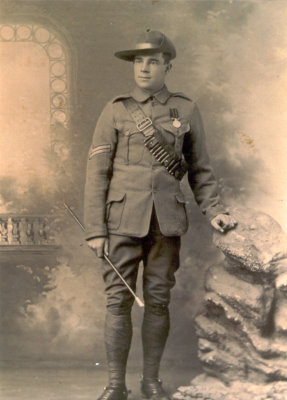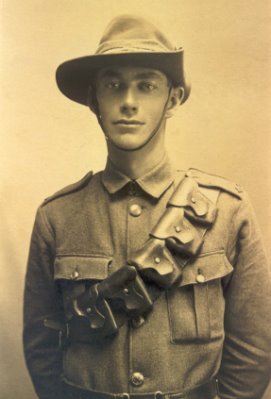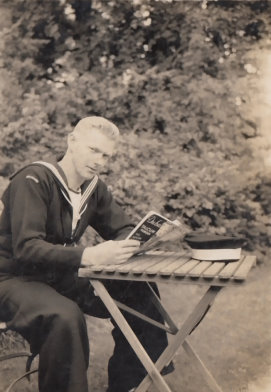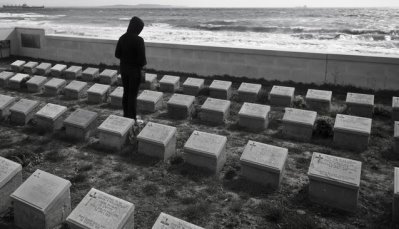Also, the number of this posting is Story 1800, and as with most “round numbers”, I usually relate something more personal - if I can think of something (which I just have!)
When I started high school (it was a boys’ boarding school because we lived too far in the countryside to travel daily to a high school) it was not that long since the end of World War II. Hence, as part of the school curriculum, there was military training. We called it “Barracks”. Every Wednesday there would be “Barracks”. And then, twice a year there would be “Barracks Week”.
I hated it.
We were issued with “Sandpaper Suits”, i.e. shorts, jacket, and beret, made of rough fabric, which with all the marching simply sandpapered your groin into oblivion. Every night the dormitories reeked of “Brasso” as everyone polished the brass buttons on their uniform.
I hated it.

My paternal grandfather (Boer War)
We would march and march and march. It was drill drill drill. The high school was just down the road from the country’s largest military camp, and army personnel would come to drill us and shout at us and order us hither and yon. Sometimes we seemed to stand still in the hot sun for hours. I learnt to obey everything with half an ear but my mind retreated into a world of make-believe. If I spied a lone distant house on a hill I would invent its rooms, its view, its story. Or if I saw a bird I would fly to its nest and concoct its life.

My maternal grandfather (World War I)
During Barracks Week we were given guns and had to ponce around with them in various positions. Then we were taken “down to the river bed” where we shot at targets all afternoon and (I would imagine) I mainly missed.
I hated it.
Occasionally we would decorate ourselves with flora and crawl through muddy creeks and prickly hedgerows to fire blanks at opposing army personnel. It was to turn boys into men.
I hated it.

My mother's brother (World War II) - he didn't come back
Once a year we would go on “Bivouac”. We were herded into army trucks and transported deep into the mountains where we would set up camp in the middle of the forest, sharing with another the single canvas ground sheet (one sheet on the ground and one above). From there we would eat our rations and set a watch all night because the army was going to attack. And attack they always did, usually around 3 in the morning.
I hated it.

A school photo but I’m not in it! – shows building, rifles, uniform
Barracks continued for all five years of high school (in New Zealand high school roughly goes from age 13 to 17). It was discipline without mercy. I guess if I had been called up for war I would have gone, but the military experience taught me one thing:
to hate myself.
Today as we remember the “fallen heroes of the past” no doubt some liked the compulsory military experience and some did not. Personally I feel most for those who died fighting for our freedom…
… and hating every minute of it.

Some graves at Gallipoli
